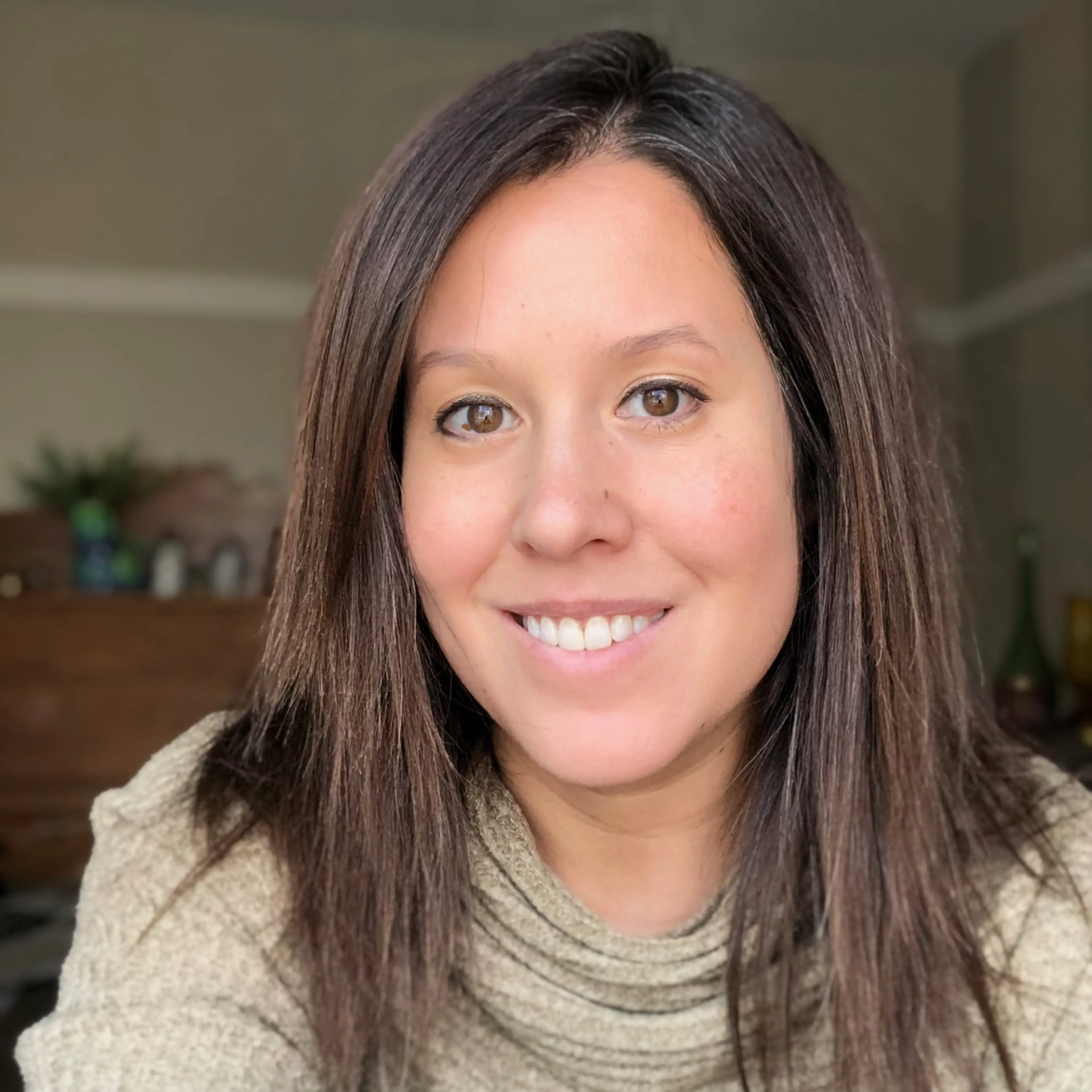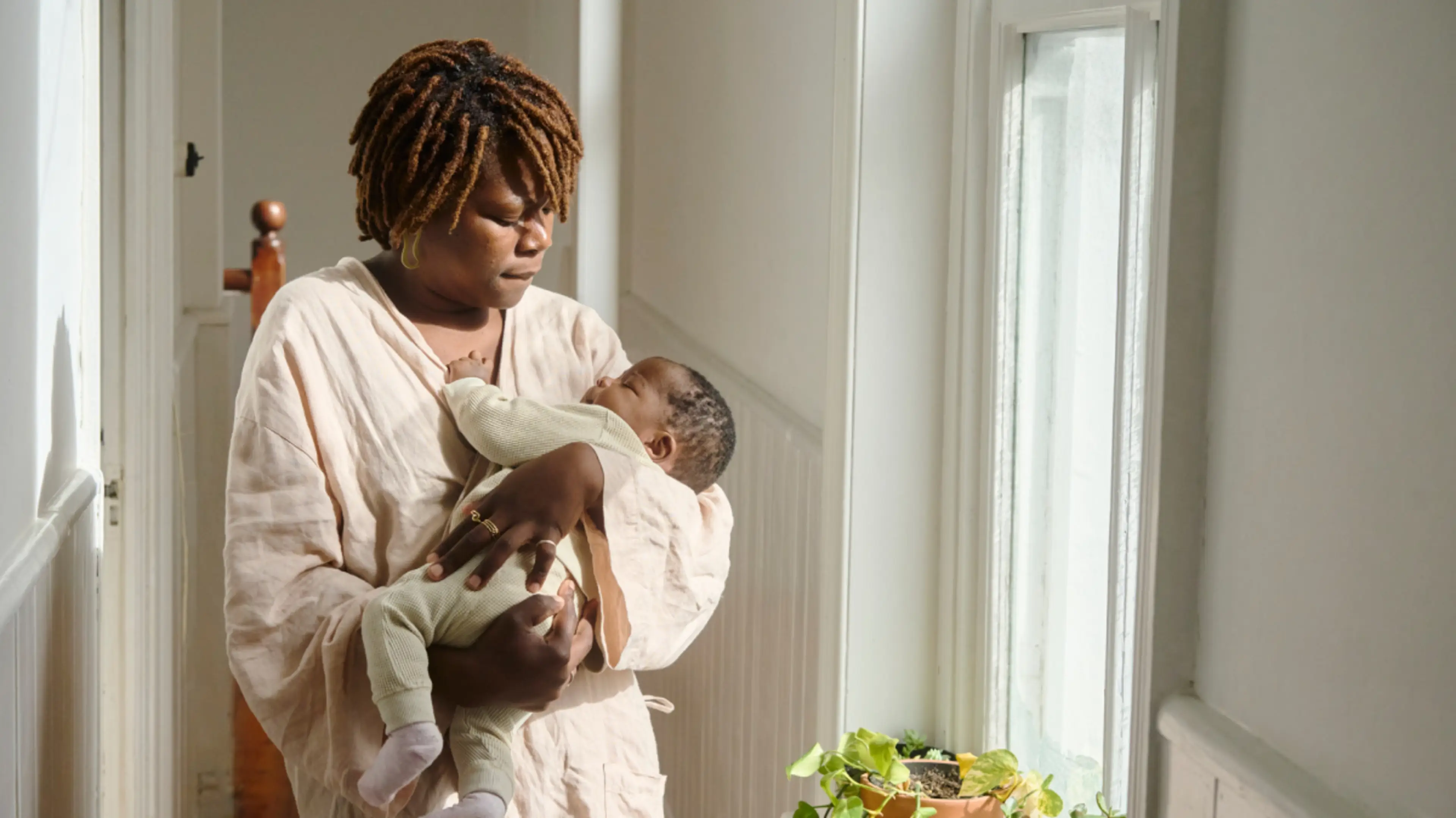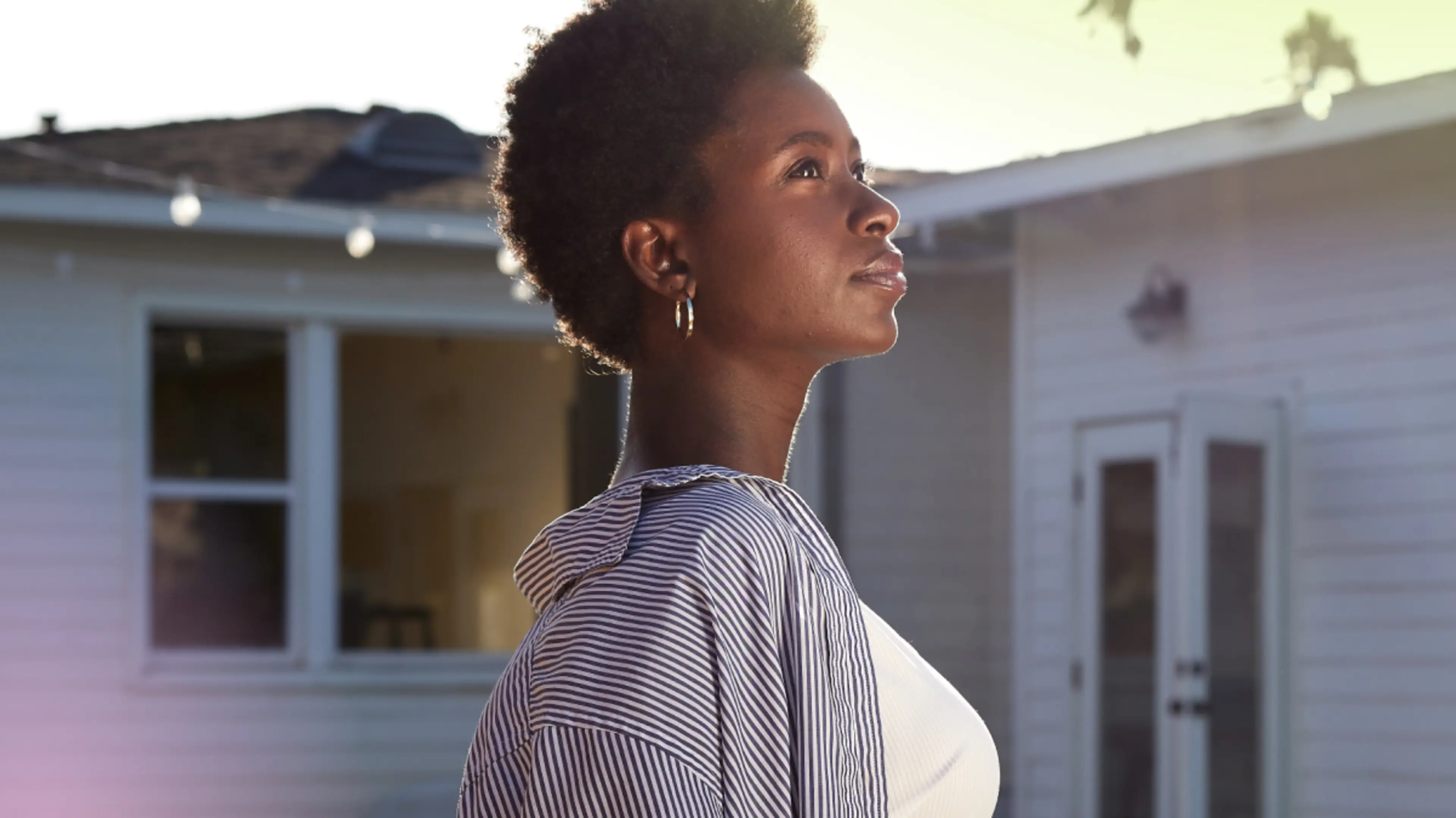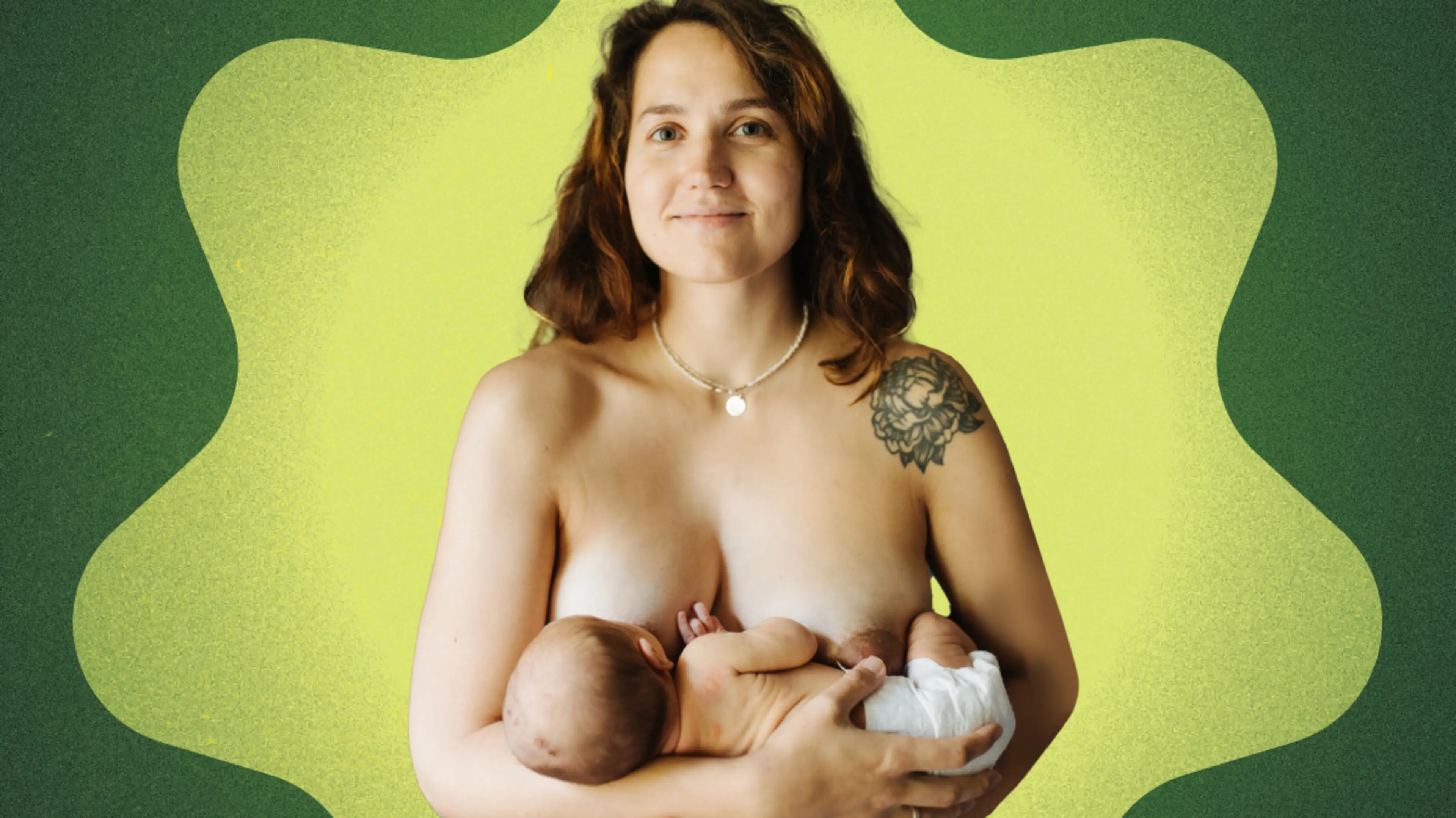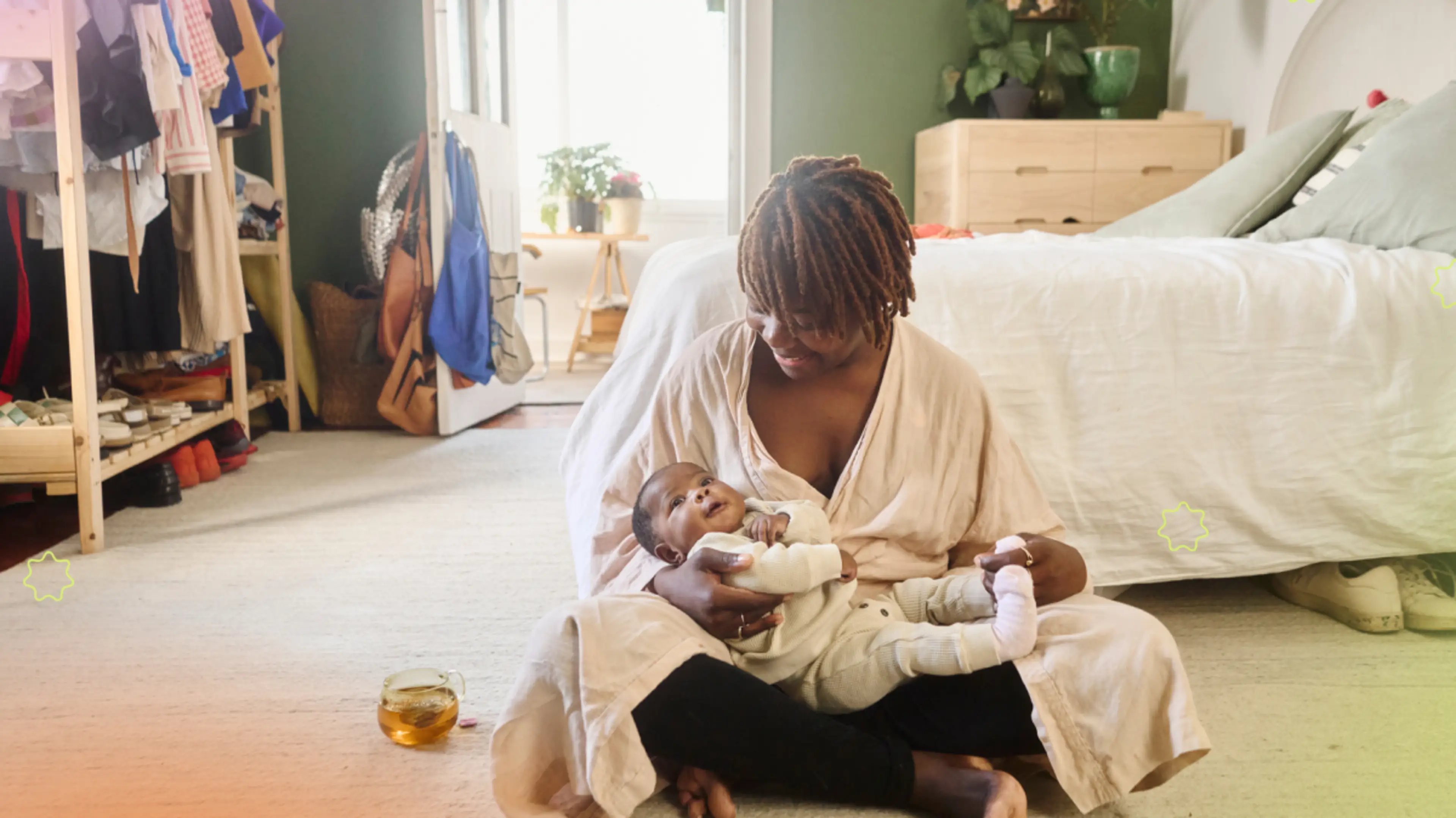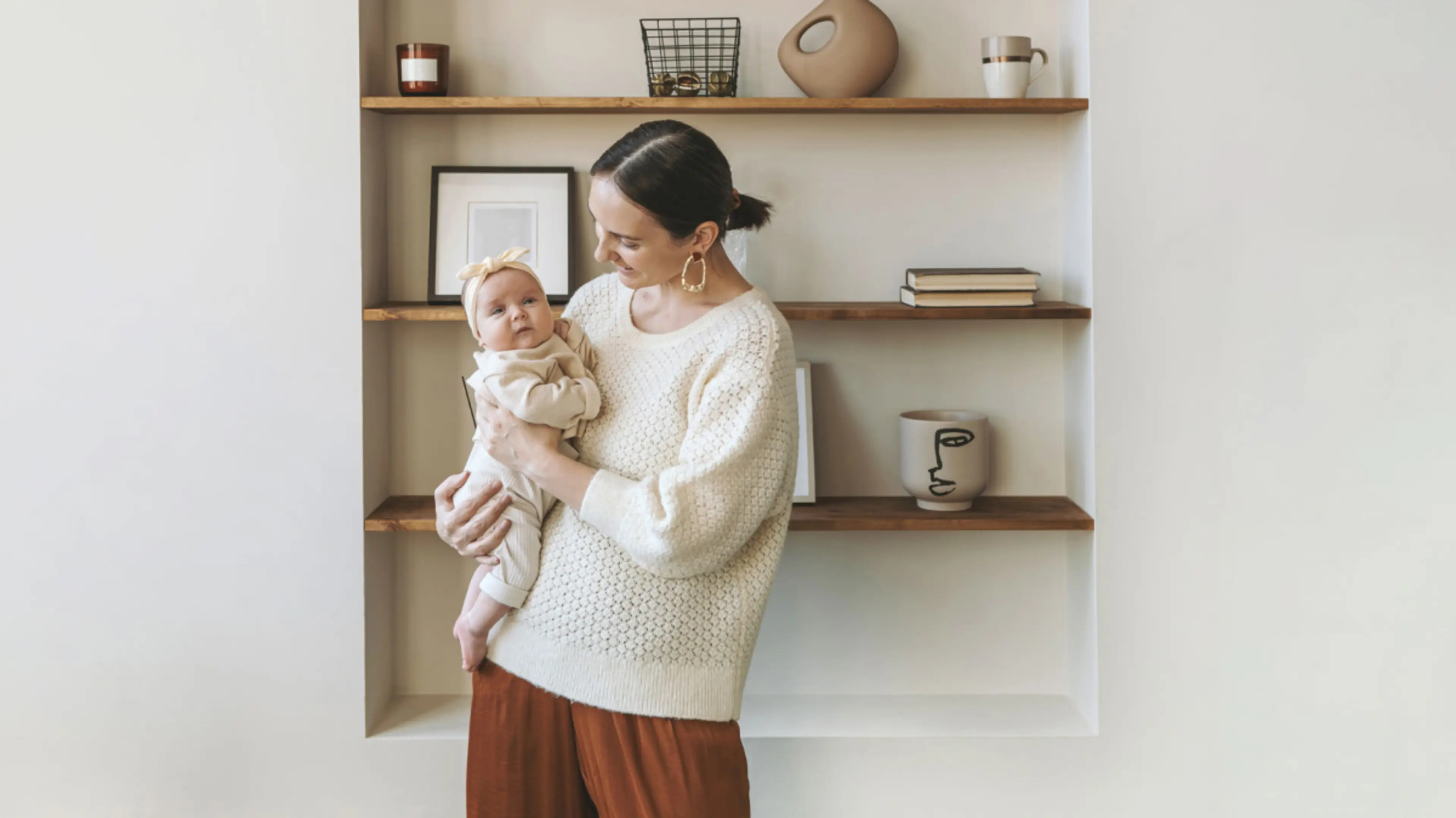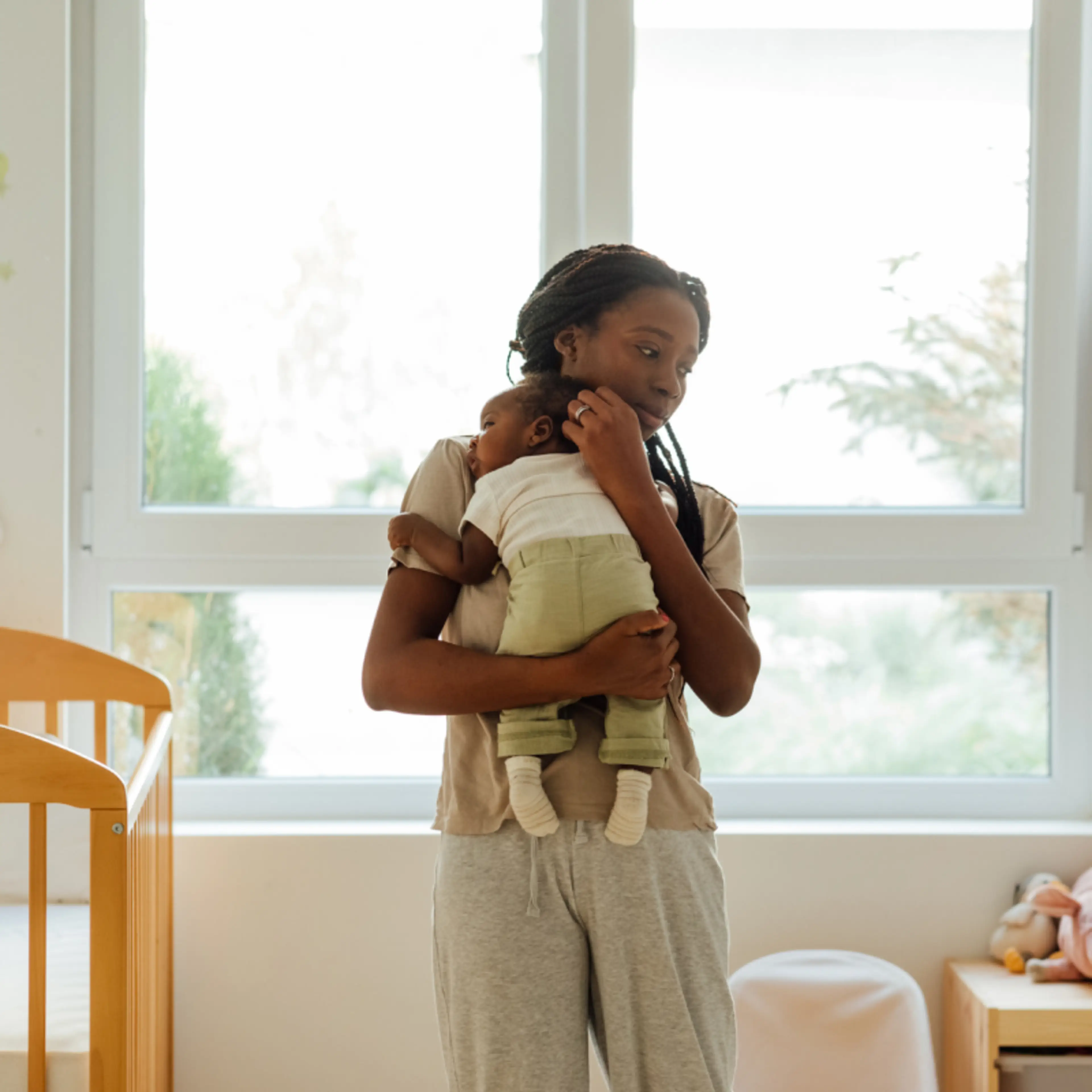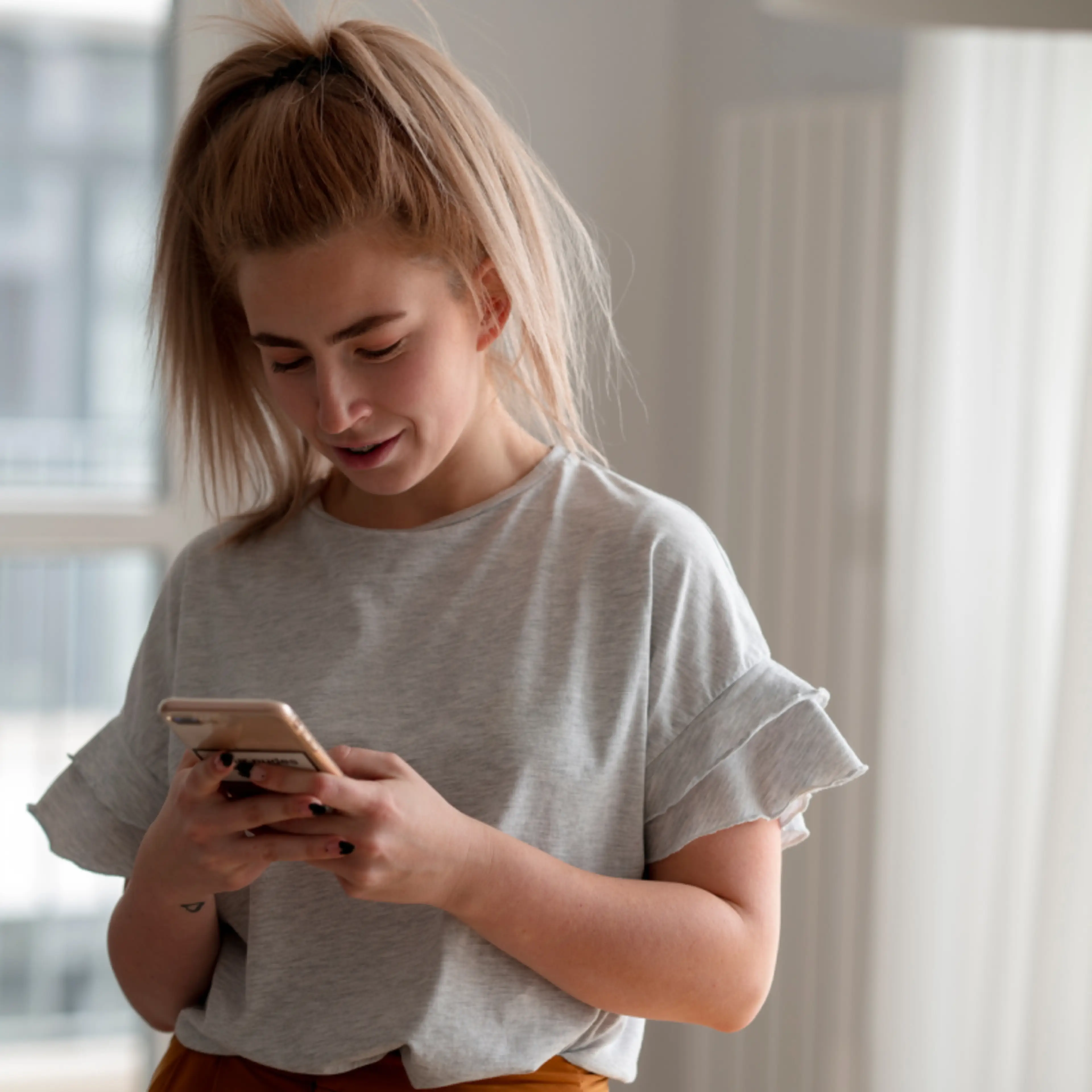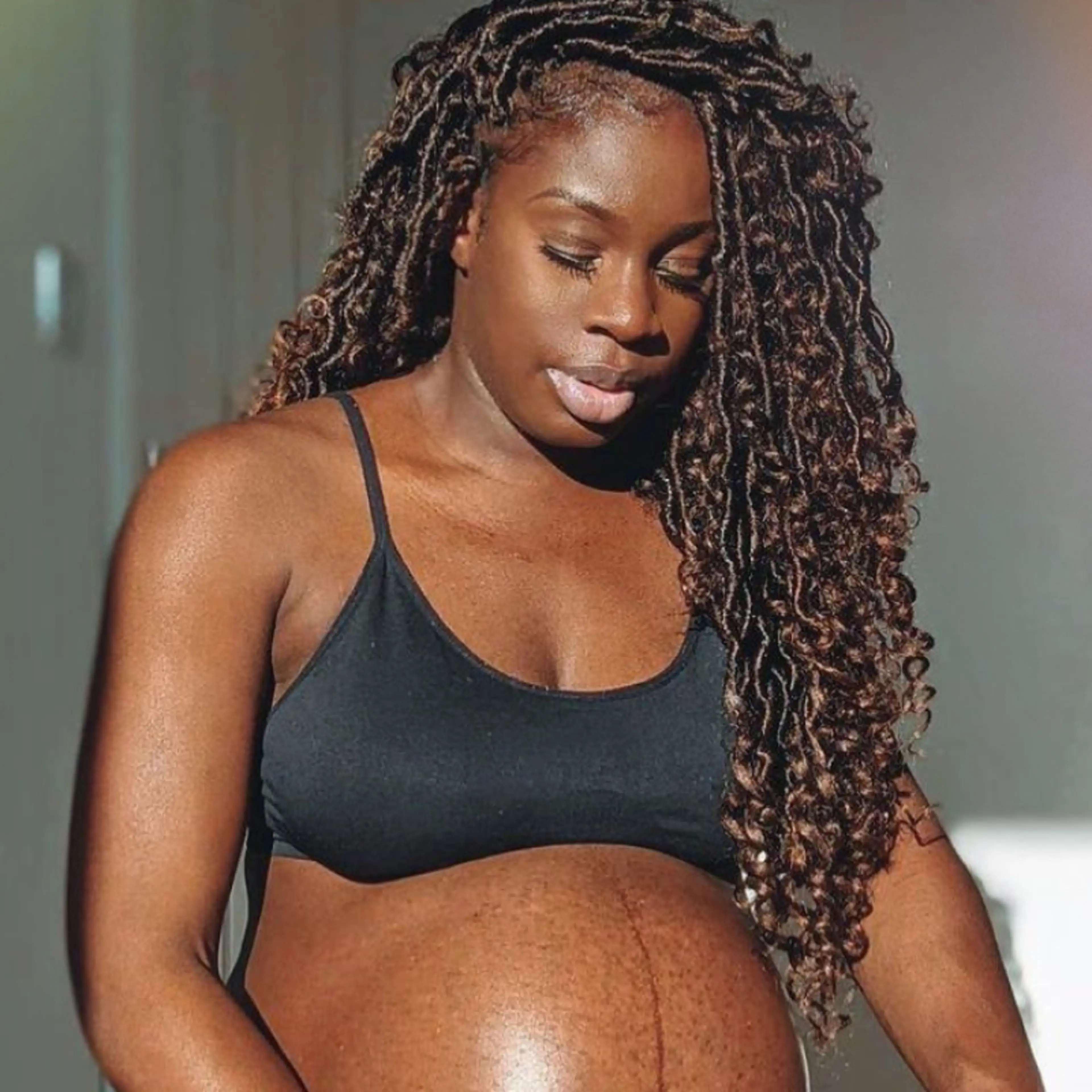Having a kid is…illuminating, to say the least. Looking back, I can see inklings that below the surface I was churning with just the right ingredients to cook up a postpartum anxiety experience that would blow my mind wide open. But I didn’t realize that at the time. Maybe I’d deluded myself into thinking I was an easy breezy, go-with-the-flow, it’s-all-good, no-worries type of human my whole life. Then again, I’ve always been in tune with my emotions (a nice way of saying I cry a lot), and highly aware of the feelings of those around me (probably to a fault). I’m also an IBS-having, people-pleasing, rule-follower. But I’m getting ahead of myself here.
Looking back, it’s really kind of incredible that I never realized anxiety was a central part of my existence as a human. I had all the makings of a sensitive child—the kind people now call deeply feeling kids. According to family lore, when I was a nine-month-old, my family took me on a plane where two people started arguing in tense voices: I cried until they stopped. I still get that same fight-or-flight feeling when I catch an edge in someone’s tone.
When I was school-aged, I was shy and self-conscious, but thanks to a very confident and outgoing best friend, I didn't have to do much in the way of learning to stand up for myself. (We’re still best friends to this day.) Where anxiety really took hold was in my ability—or lack thereof—to speak up in class. It was like an invisible force was literally holding me down—even when I knew the answer, even when I had something interesting to say.
As I grew up, the anxiety morphed and changed with me. I developed a sweaty upper lip when I had to talk with strangers at parties. My hands would shake uncontrollably during job interviews fresh out of grad school. And then I had a baby and the intensity of love I felt was a catalyst—concentrating the anxiety I’d held in my bones for decades into a singular need to keep my child safe. It also forced that feeling into the light—a familiar tickle in my gut that I didn’t know had a name but could no longer ignore.
I was always a bit hesitant to get pregnant and have a child. Mostly I was scared that my precious alone time would be ripped from my sleep-deprived hands (it was). But I was also worried about other stuff. Would I be a good mom? Could I actually discipline? Could I function without sleep? Would I still have a career? Would I struggle with my mental health? Would my body completely change? Could I actually handle pregnancy let alone a screaming, wiggly person?
Normal worries, yes, but also ones that stopped me from having a kid until I was well into my 30s. So when I finally did see those two blue lines in November of 2019, I was shocked. Is it normal to ugly cry every time you tell a loved one you’re pregnant? I don’t know, but I did, and it was partly because I was happy, but also because I was scared shitless.
Then there was the pregnancy, which laid bare every body insecurity I’ve ever had, all my hopes for my future family, and the very real fear of not getting there in one piece. Pregnancy was hard for a number of reasons (did I mention my acid reflux forced me to give up red sauce?), but none more than the mental challenge of carrying my first child as the world was shutting down due to a terrifying new virus that was sweeping the globe. If I wasn’t panic-stricken before, I certainly was now.
I don’t blame COVID for giving me anxiety—I now see that I clearly had it before—but it definitely didn’t help the situation. When I went into the hospital to give birth in July 2020, five months after the start of the pandemic, the stakes were high and tensions were even higher. I’d been isolating myself from my family so as not to catch the virus before the big day. That meant a virtual baby shower, none of the pre-baby family bonding, and zero ability to make friends with other expecting moms. I felt scared, but also like I had to go forth on this hero’s journey alone—a pregnant Frodo waddling around the volcanic ashes of Mordor.
My labor and delivery went fine. Honestly, nothing to write home about. We both came out healthy on the other side. But what I did not expect was the dial on my emotional meter to turn up to five billion and break my nervous system—the arrows spinning in circles as my brain was having a nuclear love meltdown over this tiny baby. Then, like an emergency protocol coming online, the hypervigilance kicked in—an intense need to keep this helpless being of mine safe. Everything I thought I knew about myself was going all topsy-turvy with hormones, raw emotions, and the beginnings of a postpartum anxiety that would flood my body and brain for nearly a year before I understood what was going on.
It started that first night—the inability to sleep and the constant on-alertness for every little breath or rumblings of a cry. I don’t know that I slept for even a minute of my entire hospital stay. It’ll get better when we get home, I thought. Wrong. It got worse because now my husband and I were solely responsible for keeping this little human alive. Sleep when the baby sleeps, they said. Sure, if I could turn my brain off. (I now know this is a huge red flag for postpartum anxiety.) Let your husband bottle feed the baby? I would if I wasn’t desperately trying to breastfeed—and not introduce a bottle because of the dreaded nipple confusion I’d been warned about from countless new mommy classes, or even worse, give my son—dun-dun-dun—formula. (We really need to stop with the formula shaming, y’all.)
For a short time, breastfeeding was working. The lactation consultant was thrilled with the latch and the doctors were happy with my son’s weight. But, as soon as we went home, and the real work began, we couldn’t replicate the same magic. The latch wasn’t happening and I wasn’t producing enough milk. So the round-the-clock pumping and trying to breastfeed began, which only added to my angst (and sleepless nights). Guess what? Severe sleep deprivation makes postpartum mood disorders worse. I found myself in a cycle of no sleep, five-alarm anxiety over the safety of my son, checking the monitor, checking it again, having weird, intrusive thoughts, and spiraling out of control with worry. I loved my son so completely, and yet I didn’t recognize myself.
About nine months in, my son started to sleep a little bit more. Practically, that meant we were all slightly more well-rested, which my body took as a sign that it was safe to come out of survival mode. That was a turning point, because it allowed me the mental space to really reflect on how I’d been feeling. I had a vague sense that my constantly frayed nerves and dog-chasing-its-tail thoughts weren’t exactly the norm. One tip-off was my new mom friend’s seemingly nonchalant attitude about her baby crying or not taking a bottle or not pooping that day or [insert any other normal baby activity]. I saw that motherhood could be more than what I was experiencing. The other push was from the person who knows me best. My husband, who I dated for seven years before we got married, and then another three of soul-searching together before we had a baby. When he sat me down to break it to me gently that I needed help, I listened. From there, I reached out to a therapist who specialized in perinatal mood disorders, where I did some deep work to untie the knots of anxiety I’d been carrying around. About a year later, I felt ready to tackle the challenges of new motherhood without someone holding my hand.
I wish it hadn’t taken me so long to understand that what I was feeling wasn’t normal. It can be hard to parse out the difference between new mom fears and actual, bat-shit crazy ones. But I’m glad I finally did. Therapy certainly helps. Talking with other moms who’ve had similar experiences does, too. The funny thing is, going through postpartum anxiety, and finding the strength to get help, has made the anxiety in other parts of my life virtually non-existent. There’s something about transforming into a mother and doing impossibly hard things that makes talking to strangers or speaking up in meetings seem a lot less scary.
The mom anxiety has gotten better, way better, but it may never go away completely. Now I have to check myself in new types of anxiety-inducing situations. Instead of laying in a state of panic about whether my son is breathing in his crib, I have to watch him climb up the big ladder at the park, squelching down the urge to yell “Be careful!” every five seconds. Because, deep down, I’m confident we’re both going to be okay.
